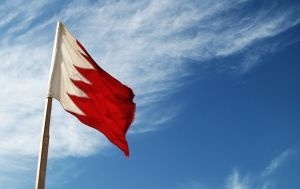Bahrain country report

Despite the oil price recovering from February 2016 lows marginally above $26 to $41 per barrel, the Bahraini stock market continues is precipitous drop. The Bahrain Bourse All Share Index has fallen steadily from above 1480 last March to 1123 in mid-April, a low not seen since early 2013. There is no evidence of a recovery in market confidence.
With a turbulent start of the year after a troubled 2015, commodities and asset classes alike have been feeling the squeeze across the board. In the GCC states, falling oil prices and a corresponding reduction in state revenues has precipitated a large rollback of food and fuel subsidies, as well as a drop in outside investment into the region.
Mounting pressure on governments relying on oil prompted Standard & Poor’s to downgrade several Middle Eastern sovereign ratings, with Oman, Saudi Arabia and Bahrain all falling two grades in mid-February. However, of the three Bahrain alone slipped to a speculative BB rating, or junk bond status, a causing market uproar as the state cancelled a $750m bond tap only two days after pricing.
S&P’s logic on the downgrade was the importance of oil in the Bahraini economy, accounting for 20% of Bahrain’s GDP, around 75% of fiscal revenue and 60% of exports, according to the firm, which also predicts a rise in government debt to 77% in 2017.
Economic diversification
However, Bahrain takes a dim view of these justifications, with Rasheed Al Maraj, governor of the Central Bank of Bahrain, calling the downgrade “disappointing and unexpected”. According to the Economic Development Board of Bahrain (EDB), the drop in rating was unexpected mainly because “oil accounts for a smaller part of GDP than the other countries in the region,” meaning drops in price have fewer effects when compared to other regional countries.
A recent report on Bahrain’s economic performance in the year-to-date published by the EDB offers a mixed set of indicators for the country’s future. In 2015, real GDP continued to grow by 2.9%, despite a 0.9% fall in the hydrocarbons sector, but in nominal GDP terms 2015 saw a 4.8% contraction.
Bahrain’s non-oil industry, expanding by 3.9%, is, of course, the success story the country wishes to focus on. With a developed domestic programme to encourage local entrepreneurship, and gradual encouragement of foreign investment, the EDB believes that non-hydrocarbon growth can offset, and even outweigh, any economic damage related oil price. During 2015, growth was particularly strong in the tourism, construction and the private education and healthcare sectors.
Fiscal consolidation
Elsewhere, the state has made concerted efforts at both fiscal reforms and subsidy reductions. The latter has been especially radical, with fuel prices rising 60% as the government removed its flat subsidy. Responding to criticism of the move and its effects on middle-class Bahrainis, Al Maraj emphasised that the new arrangement was fairer, as subsidies would now be tiered so that higher-income citizens would pay more, while the poorest would be shielded from its effects.
Fiscal reform has focused on encouraging capital mobilisation for growth through focused investment promotion and targeted support for strategic infrastructure projects. Credit growth peaked last year at 10% in December, and has been above 5% since May 2015, showing an increase in borrowing for non-oil projects throughout the economy.
While these initiative are laudable and may put Bahrain in a reasonable position, they are perhaps a case of too little, too late. S&P show no sign of reversing their decision, relegating Bahrain to the status of junk for a while longer, albeit with a stable rating.
The government’s debt burden has doubled since 2009, when “in response to the global economic slowdown and civil unrest, government expenditures started to rise – reaching 30% of GDP in 2012, from 23% in 2008 – particularly through recurrent items such as public-sector wages and subsidies,” according to S&P. As much as Bahrain has taken steps to combat this rising debt crisis, it is too early to tell whether these measures will have the requisite effect.
Found this useful?
Take a complimentary trial of the FOW Marketing Intelligence Platform – the comprehensive source of news and analysis across the buy- and sell- side.
Gain access to:
- A single source of in-depth news, insight and analysis across Asset Management, Securities Finance, Custody, Fund Services and Derivatives
- Our interactive database, optimized to enable you to summarise data and build graphs outlining market activity
- Exclusive whitepapers, supplements and industry analysis curated and published by Futures & Options World
- Breaking news, daily and weekly alerts on the markets most relevant to you


